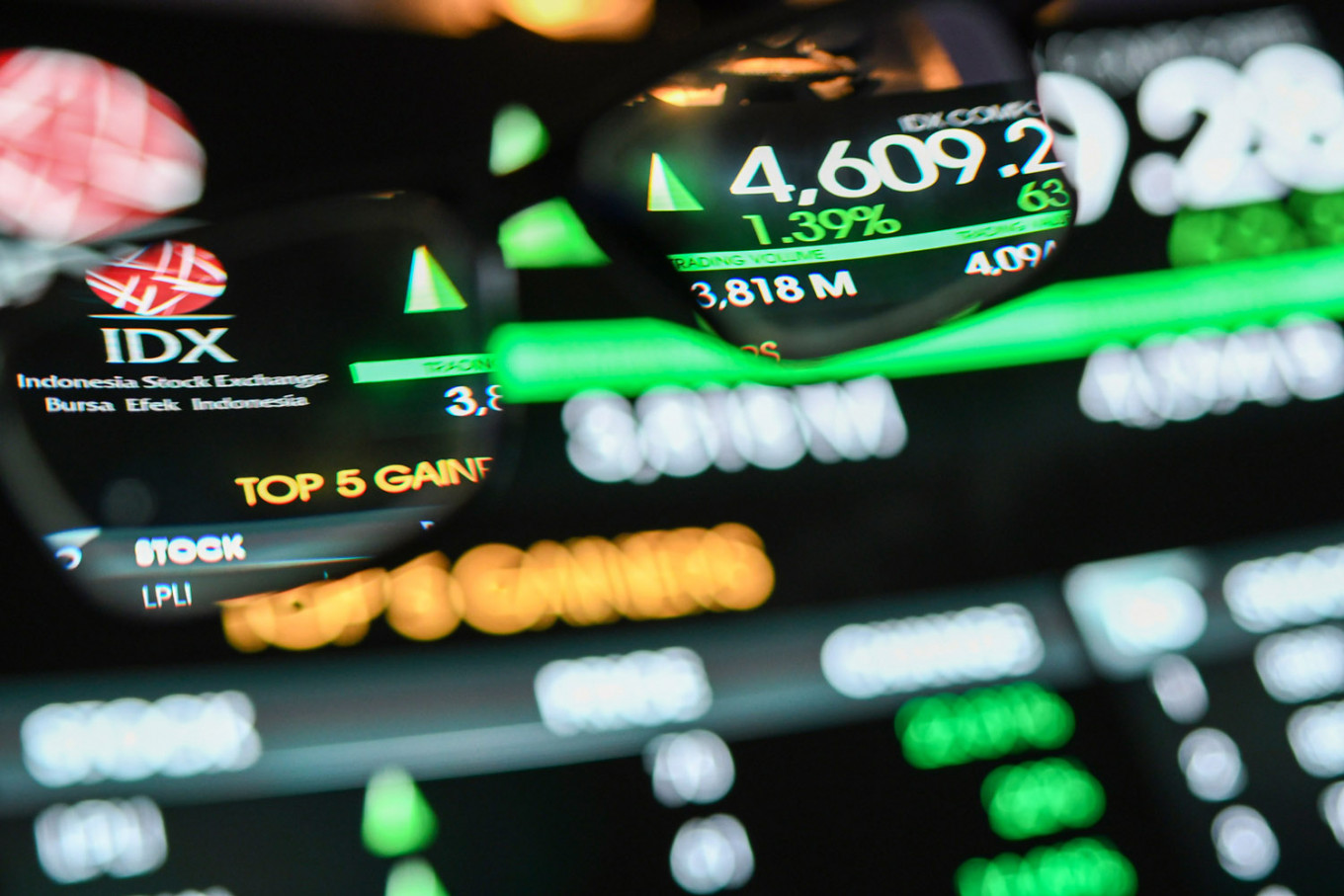Popular Reads
Top Results
Can't find what you're looking for?
View all search resultsPopular Reads
Top Results
Can't find what you're looking for?
View all search resultsFed rate hike has little effect on Indonesian markets, but risks loom
Stocks, bonds and the rupiah showed little change the day after the United States Federal Reserve raised its benchmark rate.
Change text size
Gift Premium Articles
to Anyone
I
ndonesian financial markets have not been significantly affected by a recent United States Federal Reserve rate hike, but the impact may be more pronounced in the coming months as global inflation picks up, analysts say.
The rupiah and domestic stocks and bonds have largely held their course following the Federal Funds Rate (FFR) hike on March 16 to combat record-high inflation in the US. It was the first time the central bank had raised the benchmark rate since 2018.
On March 17, the Indonesia Stock Exchange (IDX) Composite index shed 0.4 percent, the benchmark 10-year government bond (SBN) yield steadied at 6.72 percent from the previous day, and the rupiah strengthened to Rp 14,290 against the US dollar.
“The effect has already been priced into the market for this more aggressive FFR,” said Faisal Rachman, an economist at state-owned, publicly listed Bank Mandiri.
“What would be a problem is if inflation in Indonesia rises sharply so that Bank Indonesia [BI] raises the 7DRRR,” he added, referring to the central bank’s benchmark 7-day Reverse Repo Rate.
Markets have long anticipated the US central bank’s rate hike to combat rising inflation, which hit a 40-year high of 7.9 percent in February.



















